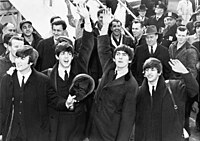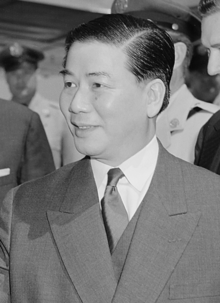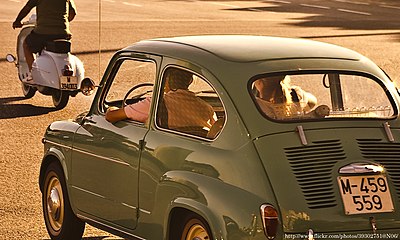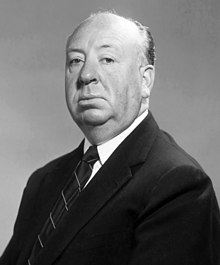Portal:1960s
The 1960s Portal
The 1960s became synonymous with the new, radical, and subversive events and trends of the period. In Africa the 1960s was a period of radical political change as 32 countries gained independence from their European colonial rulers. Some commentators have seen in this era a classical Jungian nightmare cycle, where a rigid culture, unable to contain the demands for greater individual freedom, broke free of the social constraints of the previous age through extreme deviation from the norm. Christopher Booker charts the rise, success, fall/nightmare and explosion in the London scene of the 1960s. However, this alone does not explain the mass nature of the phenomenon. Several nations such as the U.S., France, Germany and Britain turned to the left in the early and mid 1960s. In the United States, John F. Kennedy, a Keynesian and staunch anti-communist, pushed for social reforms. His assassination in 1963 was a stunning shock. Liberal reforms were finally passed under Lyndon B. Johnson including civil rights for African Americans and healthcare for the elderly and the poor. Despite his large-scale Great Society programs, Johnson was increasingly reviled by the New Left at home and abroad. The heavy-handed American role in the Vietnam War outraged student protestors across the globe, as they found peasant rebellion typified by Ho Chi Minh and Che Guevara more appealing. Italy formed its first left-of-center government in March 1962 with a coalition of Christian Democrats, Social Democrats, and moderate Republicans. Socialists joined the ruling block in December 1963. In Britain, the Labour Party gained power in 1964. In Brazil, João Goulart became president after Jânio Quadros resigned. This is a Featured article, which represents some of the best content on English Wikipedia..
On November 11, 1960, a failed coup attempt against President Ngô Đình Diệm of South Vietnam was led by Lieutenant Colonel Vương Văn Đông and Colonel Nguyễn Chánh Thi of the Airborne Division of the Army of the Republic of Vietnam (ARVN). The rebels launched the coup in response to Diệm's autocratic rule and the negative political influence of his brother Ngô Đình Nhu and sister-in-law Madame Nhu. They also bemoaned the politicisation of the military, whereby regime loyalists who were members of the Ngô family's covert Cần Lao Party were readily promoted ahead of more competent officers who were not insiders. Đông was supported in the conspiracy by his brother-in-law Lieutenant Colonel Nguyen Trieu Hong, whose uncle was a prominent official in a minor opposition party. The main link in the coup was Đông's commanding officer Thi, whom he persuaded to join the plot. (Full article...)This is a Good article, an article that meets a core set of high editorial standards.
Goldfinger is a 1964 spy film and the third instalment in the James Bond series produced by Eon Productions, starring Sean Connery as the fictional MI6 agent James Bond. It is based on the 1959 novel of the same name by Ian Fleming. The film also stars Honor Blackman, Gert Fröbe and Shirley Eaton. Goldfinger was produced by Albert R. Broccoli and Harry Saltzman. The film was the first of four Bond films directed by Guy Hamilton. The film's plot has Bond investigating gold smuggling by gold magnate Auric Goldfinger and eventually uncovering Goldfinger's plans to contaminate the United States Bullion Depository at Fort Knox. Goldfinger was the first Bond blockbuster, with a budget equal to that of the two preceding films combined. Principal photography took place from January to July 1964 in the United Kingdom, Switzerland and the United States. (Full article...)Selected picture -Did you know -
Related portalsThis is a Featured article, which represents some of the best content on English Wikipedia..
Sir Richard Starkey MBE (born 7 July 1940), known professionally as Ringo Starr, is an English musician, songwriter and actor who achieved international fame as the drummer for the Beatles. Starr occasionally sang lead vocals with the group, usually for one song on each album, including "Yellow Submarine" and "With a Little Help from My Friends". He also wrote and sang the Beatles songs "Don't Pass Me By" and "Octopus's Garden", and is credited as a co-writer of four others. Starr was afflicted by life-threatening illnesses during childhood, with periods of prolonged hospitalisation. He briefly held a position with British Rail before securing an apprenticeship as a machinist at a Liverpool school equipment manufacturer. Soon afterwards, Starr became interested in the UK skiffle craze and developed a fervent admiration for the genre. In 1957, he co-founded his first band, the Eddie Clayton Skiffle Group, which earned several prestigious local bookings before the fad succumbed to American rock and roll around early 1958. When the Beatles formed in 1960, Starr was a member of another Liverpool group, Rory Storm and the Hurricanes. After achieving moderate success in the UK and Hamburg, he quit the Hurricanes when he was asked to join the Beatles in August 1962, replacing Pete Best. (Full article...)This is a Good article, an article that meets a core set of high editorial standards.
Sir Alfred Joseph Hitchcock KBE (13 August 1899 – 29 April 1980) was an English film director. He is widely regarded as one of the most influential figures in the history of cinema. In a career spanning six decades, he directed over 50 feature films, many of which are still widely watched and studied today. Known as the "Master of Suspense", Hitchcock became as well known as any of his actors thanks to his many interviews, his cameo appearances in most of his films, and his hosting and producing the television anthology Alfred Hitchcock Presents (1955–65). His films garnered 46 Academy Award nominations, including six wins, although he never won the award for Best Director, despite five nominations. Hitchcock initially trained as a technical clerk and copywriter before entering the film industry in 1919 as a title card designer. His directorial debut was the British-German silent film The Pleasure Garden (1925). His first successful film, The Lodger: A Story of the London Fog (1927), helped to shape the thriller genre, and Blackmail (1929) was the first British "talkie". His thrillers The 39 Steps (1935) and The Lady Vanishes (1938) are ranked among the greatest British films of the 20th century. By 1939, he had international recognition and producer David O. Selznick persuaded him to move to Hollywood. A string of successful films followed, including Rebecca (1940), Foreign Correspondent (1940), Suspicion (1941), Shadow of a Doubt (1943) and Notorious (1946). Rebecca won the Academy Award for Best Picture, with Hitchcock nominated as Best Director. He also received Oscar nominations for Lifeboat (1944), Spellbound (1945), Rear Window (1954) and Psycho (1960). (Full article...)Selected article -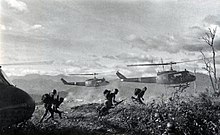 The Vietnam War (also known by other names) was a conflict in Vietnam, Laos, and Cambodia from 1 November 1955 to the fall of Saigon on 30 April 1975. It was the second of the Indochina Wars and was a major conflict of the Cold War. While the war was officially fought between North Vietnam and South Vietnam, the north was supported by the Soviet Union, China, and other communist states, while the south was supported by the United States and other anti-communist allies, making the war a proxy war between the United States and the Soviet Union. It lasted almost 20 years, with direct U.S. military involvement ending in 1973. The conflict also spilled over into neighboring states, exacerbating the Laotian Civil War and the Cambodian Civil War, which ended with all three countries officially becoming communist states by 1976. After the fall of French Indochina with the 1954 Geneva Conference on 21 July, the country gained independence from France but was divided into two parts: the Viet Minh took control of North Vietnam, while the U.S. assumed financial and military support for South Vietnam. The Viet Cong (VC), a South Vietnamese common front under the direction of the north, initiated a guerrilla war in the south. The People's Army of Vietnam (PAVN), also known as the North Vietnamese Army (NVA), engaged in more conventional warfare with U.S. and Army of the Republic of Vietnam (ARVN) forces. North Vietnam invaded Laos in 1958, establishing the Ho Chi Minh Trail to supply and reinforce the VC. By 1963, the north had sent 40,000 soldiers to fight in the south. U.S. involvement increased under President John F. Kennedy, from just under a thousand military advisors in 1959 to 23,000 by 1964. (Full article...)More Did you know (auto generated)
TopicsCategoriesWikiProjects
Associated WikimediaThe following Wikimedia Foundation sister projects provide more on this subject:
Discover Wikipedia using portals |

